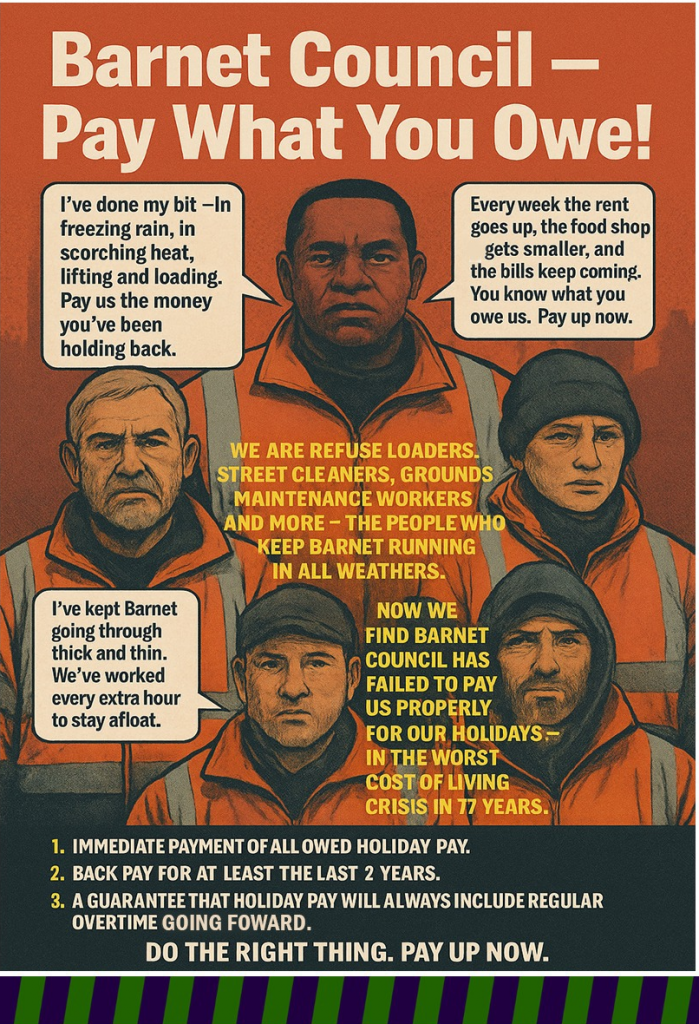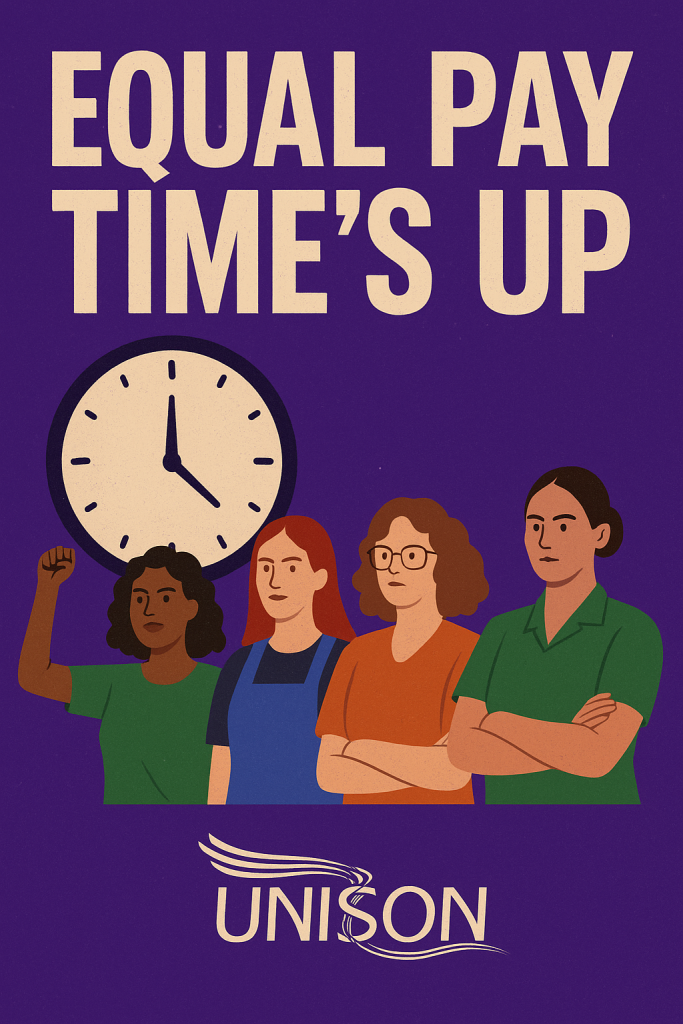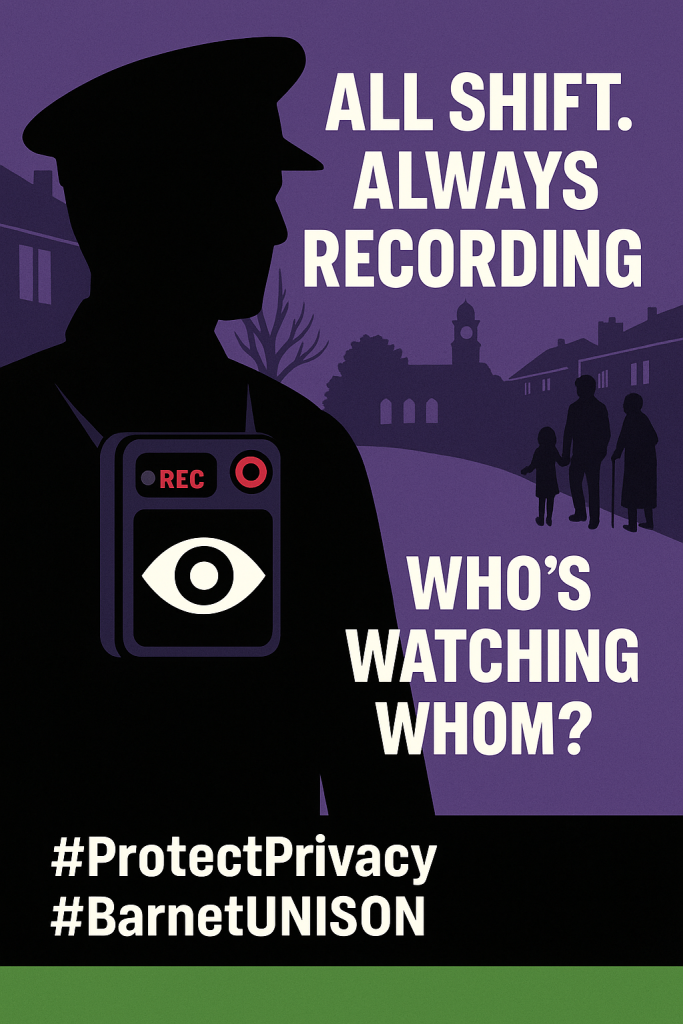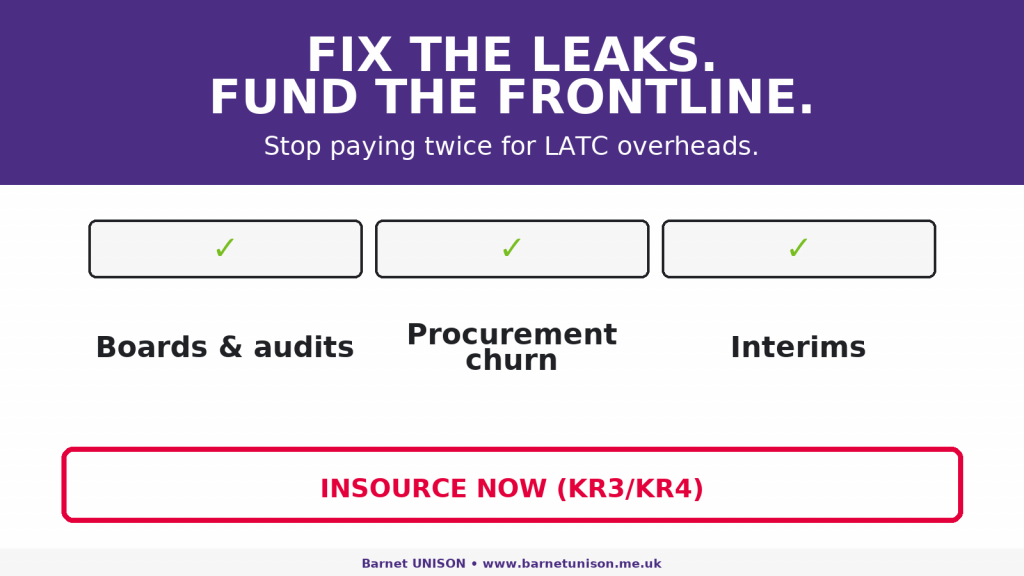
Barnet UNISON is calling on Barnet Council’s Labour administration to act on the Interim Auditor’s Annual Report (2024/25) and remove duplicated overheads across council-owned companies (LATCs) — starting an insourcing programme that delivers recurring savings without hitting frontline services or the lowest-paid staff.
To View External Auditors report click on link below.
https://www.barnetunison.me.uk/wp/wp-content/uploads/2025/10/Appendix-A-Interim-Auditors-Annual-Report-2024-25-London-Borough-Barnet-1.pdf
The Auditor confirms Barnet’s acute position: reliance on ~£55m Exceptional Financial Support (EFS) to balance 2025/26 and a collapse in General Fund reserves from £74m (Apr-21) to roughly £17–20m, with liquidity now a key risk.
“The Council must deliver £24m in savings in 2025/26… even then a £55m budget deficit remains for which the Council has sought EFS… General Fund reserves reduced from £74m… and are now approximately £17–20m.” (Executive Summary / Financial Sustainability).
At the same time, the Auditor finds a significant weakness in governance over council companies and joint ventures and issues Key Recommendation 3 (KR3) — an urgent call to inventory all companies/JVs, review their purpose and suitability, put proper KPIs in place, govern loans, and remove conflicts of interest.
What duplication looks like in Barnet (from the Auditor’s report)
Running LATCs/JVs alongside the Council means two of everything:
- Governance/Boards & Secretariat: separate boards/NEDs and basic company information not held centrally until mid-2025; gaps remain, including loans in excess of £400m not fully captured in central records.
- Parallel assurance: Barnet Group runs its own Internal Audit while the Council also runs Internal Audit — two layers for the same council-funded services.
- Procurement/contract pipelines: the Auditor identifies a significant weakness and issues KR4; multiple pipelines and inconsistent oversight undermine value for money.
- Corporate enablers repeated across entities: HR/workforce, Finance/Treasury, Legal/Governance, Risk & Internal Control, IT/Oracle/process, Performance/Compliance, Complaints, Data Protection & FOI, Communications, Insurance, PMO/Strategy — with the report evidencing parallel effort and gaps that add coordination cost.
These overheads are avoidable in an in-house model and represent savings that don’t require closing services.
Our members are worried — there is a better way
Barnet UNISON members, including those working in LATCs, are fearful of job losses and cuts to resident services. The Auditor’s report shows a route to structural, recurring savings that should be prioritised ahead of frontline cuts:
- Implement KR3: publish the complete list of companies/JVs; test each for continued suitability; set measurable KPIs; govern loans; document and remove conflicts.
- Deliver KR4: create a single, effective Procurement Board; introduce live reporting of performance, variations, waivers, risks and KPIs to CMT and those charged with governance.
- Consolidate duplicated corporate services back into the Council and insource targeted services to end board fees, duplicate audits and parallel management structures.
UNISON Barnet spokesperson:
“Councillors have inherited the damage of a decade of austerity. We recognise the scale of the challenge — but the first savings must come from removing duplicated LATC overheads, not cutting services like mental health support or Income Maximisation. Acting on the Auditor’s KR3 and KR4 gives us recurring savings, clearer accountability, and a credible route out of EFS without punishing residents or the lowest-paid.”
What savings look like (practical examples)
- Board/NED and secretariat costs reduced as LATCs are rationalised and brought in-house.
- Parallel audit/assurance: stop paying for two audit/control frameworks over the same services; align Barnet Group assurance with corporate Internal Audit.
- Procurement churn: with KR4’s central oversight, end re-tender churn and unmanaged waivers, and realise larger, strategic savings (the Council estimates ~£14m from re-tendering in 2024/25 — showing the headroom when procurement is tightened).
Every pound saved from duplication is a pound that can protect frontline services and stabilise teams, rather than funding parallel bureaucracies.
Call to action
Barnet UNISON asks Labour councillors to:
- Adopt KR3 within 12 weeks — publish the company/JV inventory; set criteria to identify insourcing candidates; document and resolve conflicts.
- Implement KR4 now — establish the Procurement Board with real-time KPI/waiver reporting to CMT and GARMS.
- Create a single corporate support model — bring duplicated HR, Finance/Treasury, Legal/Governance, Risk, Internal Audit, IT/Oracle, Comms, DP/FOI, Insurance and PMO/Performance back into one accountable centre.
- Ring-fence savings from de-duplication to avoid frontline cuts and support services residents rely on.
UNISON Barnet spokesperson:
“We’re ready to work with councillors and officers — urgently — to map duplication, size the savings and sequence insourcing so services are stabilised, not disrupted. This is the fair, credible way to balance the books.”
Notes to editors
- Document referenced: London Borough of Barnet — Interim Auditor’s Annual Report, Year ending 31 March 2025 (04 Sept 2025). Key extracts cited above: EFS/reserves (Financial Sustainability) ; governance of companies & KR3 (Governance) ; procurement weakness & KR4 (Improving Economy, Efficiency & Effectiveness) ; duplicated corporate functions & incomplete company information/loans >£400m (Governance) ; estimated ~£14m procurement savings from 2024/25 re-tendering (EEE) .
- UNISON position: Our January 2025 submission called for a shared services/duplication review before any cuts to the lowest-paid — the Auditor’s KR3 reinforces this approach. (Link available on Barnet UNISON site.)
End.
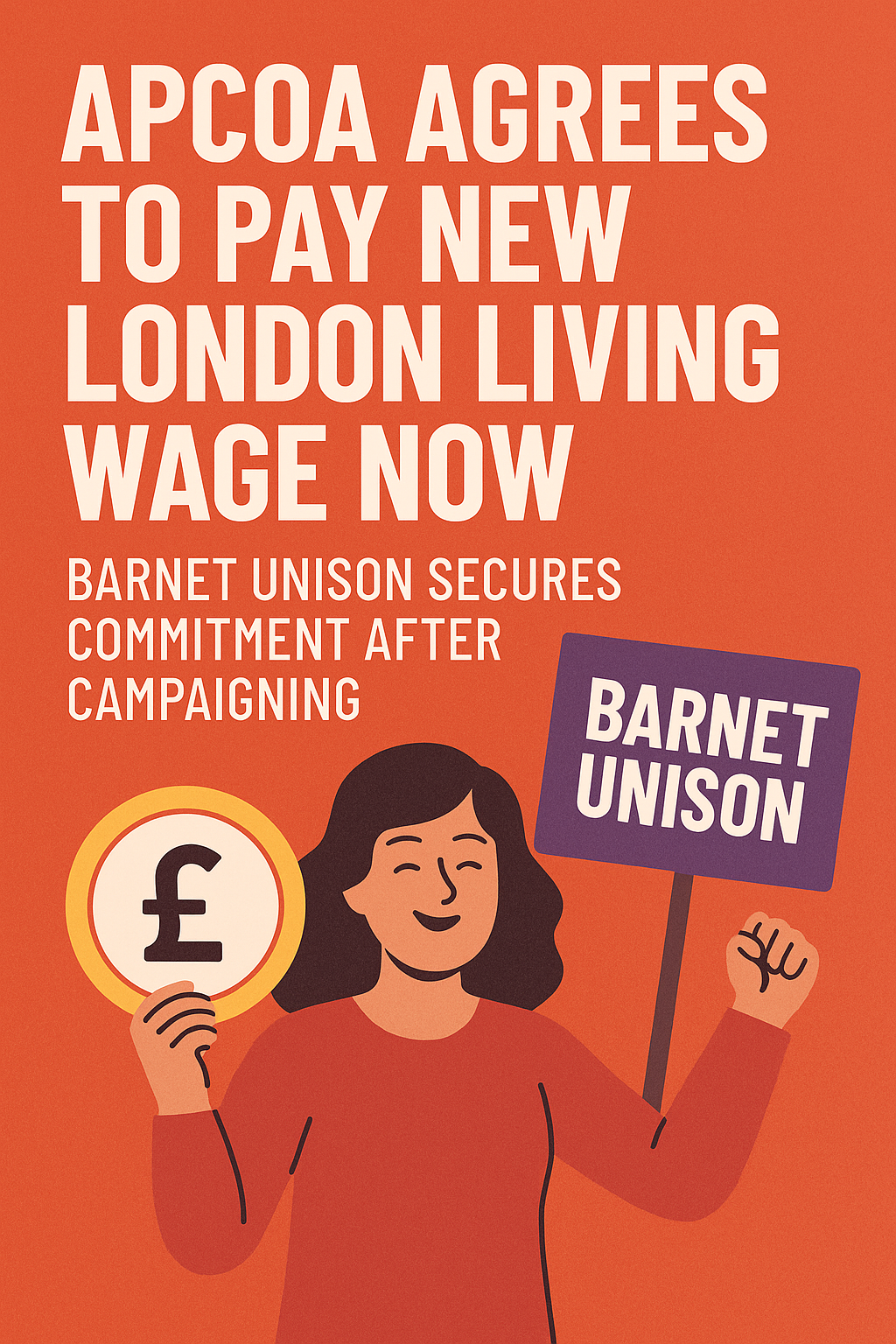




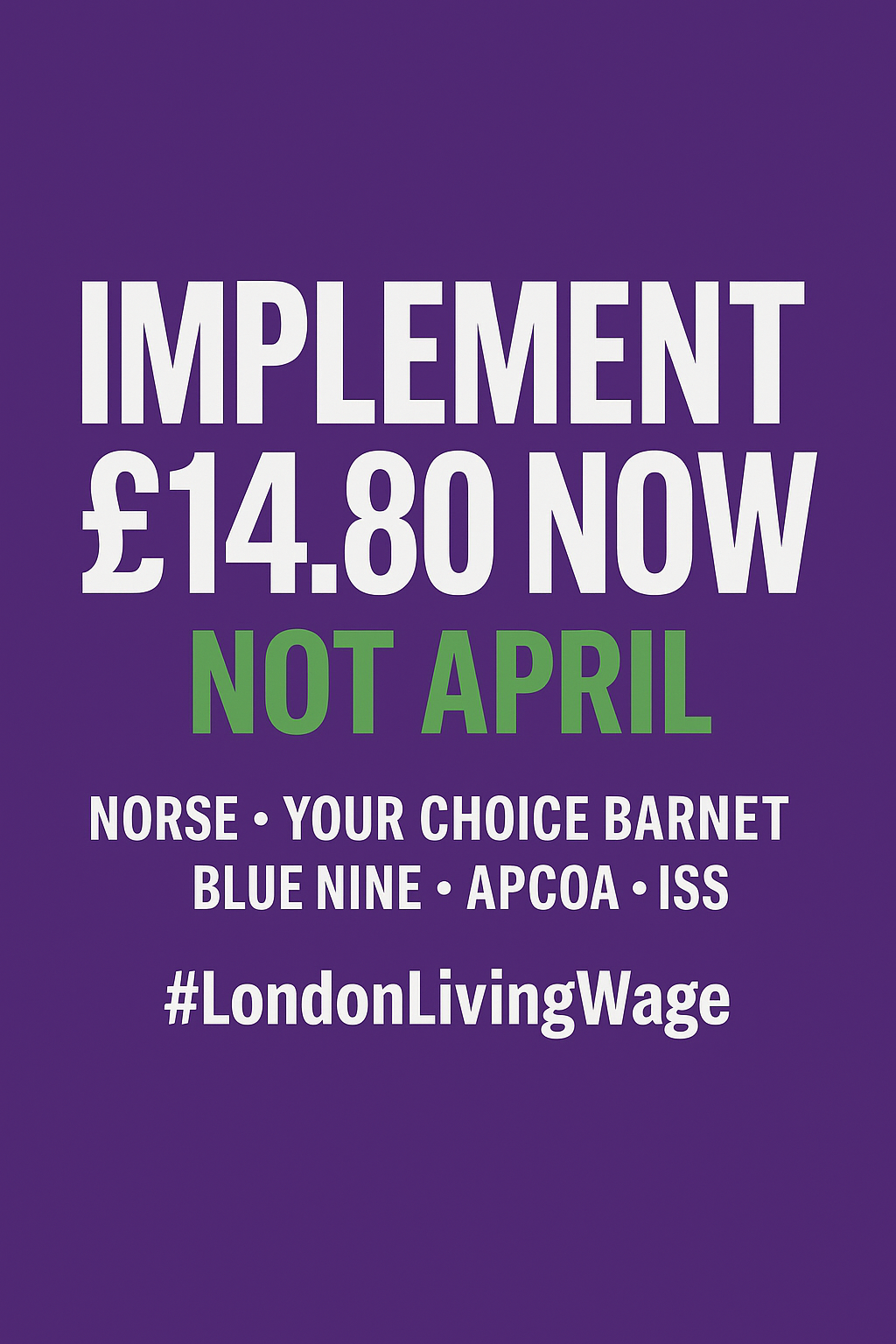
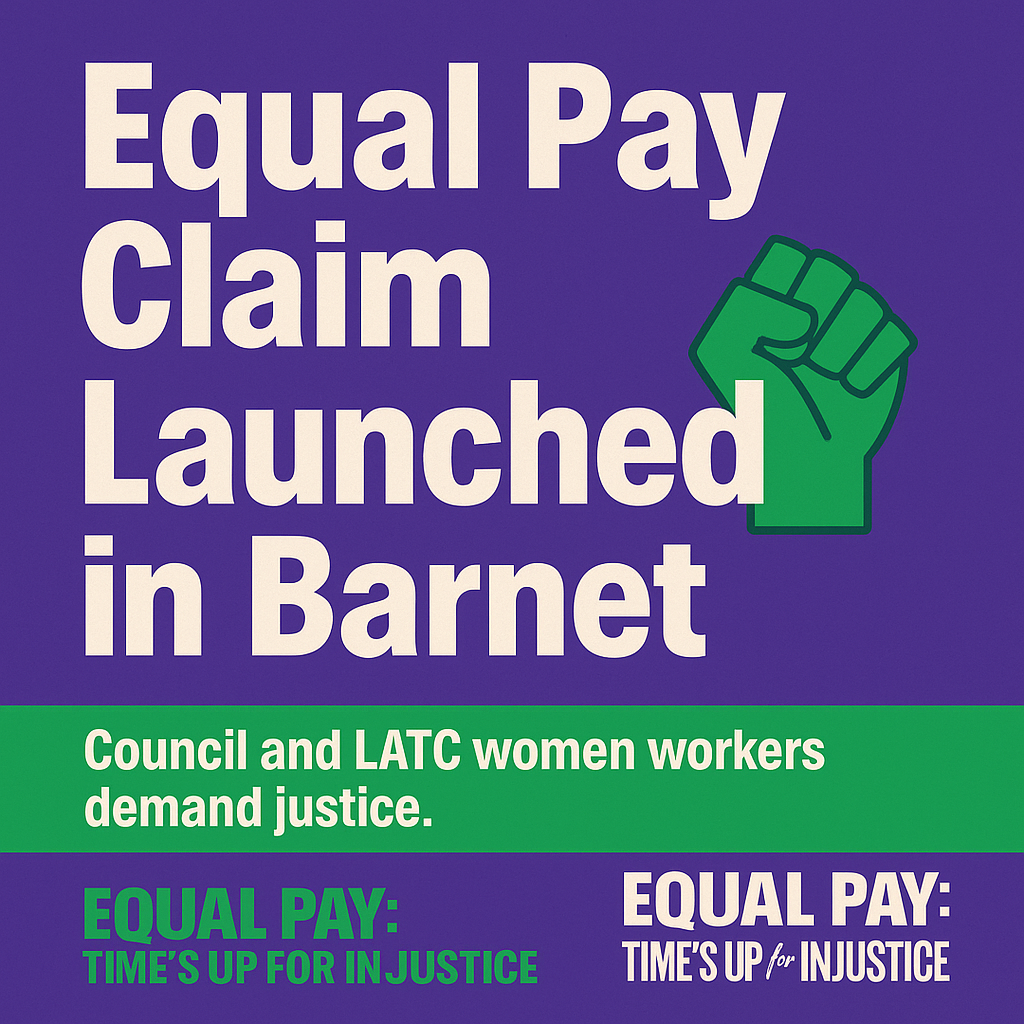 PRESS RELEASE: For immediate release:
PRESS RELEASE: For immediate release: 
